It's Immaterial - Interview
by John Clarkson
published: 29 / 10 / 2020
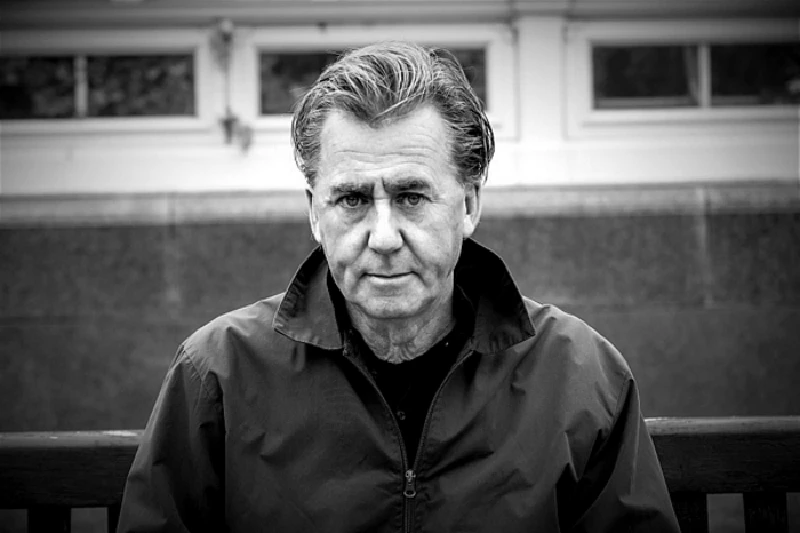
intro
With photos from Darren Aston, John Clarkson speaks to It's Immaterial vocalist John Campbell about the Liverpudlian indie pop band's third album 'House for Sale', which they began work on almost thirty years ago but have only recently completed.
It is not unusual for bands to struggle with second or third albums, it often taking much longer for them to complete than their earlier records. For Liverpudlian indie pop group and multi-instrumentalists It’s Immaterial, it has been a particularly lengthy ordeal with their “lost and found” sublime new album ‘House for Sale’. Production on it first began as far back as 1992, but due to a chain of unfortunate events and bad fortune ‘House for Sale’ has only just now been released. It’s Immaterial was formed by John Campbell, who had previously been in the cult new wave band Yachts, in 1980, and also features Jarvis Whitehead. The group recorded four John Peel sessions, before releasing their debut album, ‘Life’s Hard and Then You Die’, in 1986, and also having a no. 18 UK hit that same year with ‘Driving Away from Home (Jim’s Tune’), an offbeat M62-set road song. Their second album, ‘Song’, which was produced by Blue Nile producer Calum Malcolm, followed in 1990. ‘House for Sale’ builds on the music of ‘Song’, combining Campbell’s wistful half-spoken, half-sung vocals and reflective lyrics with gently cascading soundscapes and washes of keyboards, guitars and strings. It is an album of the elements with rain, the stars, water, the sky, sunrises and snow all featuring heavily in the backdrop to his narrative tales. On opening torch song ‘Summer Rain’ its protagonist nostalgically remembers the point that he fell in love with a girl as he watched her walk by as he sheltered beneath the trees from a shower of rain. The breezy ‘Kind Words’ features a trio of female singers and is upbeat on the surface, but its story is bittersweet, telling of a man, who returns after a long time away to visit the family he abandoned naively expecting to be greeted warmly, but who meets with an ice-cold reception. Elsewhere on the dreamy ‘Just North of Here’ its main character is pushed to reveal his idea of heaven and remembers a night-time fishing trip that he once made, while the narrator of the melancholic and longing ‘Up on the Roof’ standing on his rooftop recalls better times there with a lost love. Pennyblackmusic spoke to Campbell about ‘House for Sale’, which is self-released and is being distributed through Burning Shed, and why it took so long to finish. In often tragic circumstances involving bereavement, out-of-date equipment, masters going missing and liquidation, what shines through admirably above all is John Campbell and Jarvis Whitehead’s against the odds resilience and persistence. PENNYBLACK: Why did it take so long to complete ‘House for Sale’? JOHN CAMPBELL: It was just that life got in the way. We started to record ‘House for Sale’ way back in the 1990s in Scotland with Calum Malcolm, who produced our previous album ‘Song’, at his Castlesound Studio in East Lothian. He had to review a Pascal DX-66, a then new piece of recording equipment, which has now been obsolete for many years, for a magazine. So, he invited us up to use a week of time in the studio to start doing demos for a third album using this equipment which he could then review for the magazine. It suited both parties, so we went up to Scotland and started these demos, but then, as I said, life got in the way. It was at the end of that week that I got a phone call from Liverpool to tell me that my partner at the time had been diagnosed with breast cancer. She died about eighteen months later, and it was very difficult to be creative during that period. That put it on hold, and then other more simple things got in the way like I started teaching at the art school here in Liverpool, and Jarvis Whitehead also started about the same time a little music school that he is still running now. We had a small sixteen track studio that we used to meet up in to make music at least one day a week, but we became involved in doing in bits of music for theatres and radio plays and such forth, and all these other activities filled our time really. At some point - it must have been in the late 1990s - Calum Malcolm mailed the master tapes down to us, a box full of eight track cassettes, and we put them on this shelf in the studio for further investigation and forgot about them. About six years ago when we were relocating the studio to new premises and clearing things out, we came across them again, and then, of course, we had to find someone who had a Pascal DX-66 because they were so out of date by then. We had to run around and ask studios and friends if anyone knew anyone who had one, and we were put in touch with Tim Speed, who co-owns Elevator Studio in Liverpool. We rang up Tim, and luckily he had one in his storeroom. He said that we could go in for a day and transfer our tapes over. We were able to do this using Pro Tools, but the tapes had been affected by some digital spikes and clicks that had happened over the years, so we spent time repairing each of the tracks and deciding which bits we were going to use. There were no real fixed parts. They were just ideas, so once we had polished up those we were able to decide which ideas we wanted to keep and which ideas we wanted to expand upon, and that is how eventually the album came together. PB: How much of the material that you used in Scotland is on the final album? JC: We kept everything that Calum Malcolm played on who provides a lot of the keyboards, and we kept Jarvis’ guitar parts, and we kept my vocals, but as each track was only an idea at that stage some of them may not have had a completed chorus or may have had a chorus which we did not really like and so we changed those, so we built new parts as well. We put some string parts on it, and I did some more vocals, and John did some more guitar, and we changed some rhythms. We did quite a lot in our own sixteen track studio, and then eventually went to mix it in Elevator Studis. It is probably about fifty percent old material that we recorded in Scotland and fifty percent new material. PB: It’s Immaterial have got a reputation for perfectionism. How long did you spend working on ‘House for Sale’ after you came back to it? JC: We have got that kind of OCD reputation (Laughs). We devoted some time to it most weeks when we were trying to sort out the problems with the original recording, so over the years we must have done numerous days if you put together all the hours that we have done collectively. It was probably about a month, but we only did it for an hour here and a couple of hours there. PB: Did you rewrite many of the words? JC: Yes, I did. ‘In My Dreams’ has a completely new chorus. ‘Tell Me Why’ has got a completely new chorus. On a lot of the songs, because, as I was saying, over the years the digital masters had become a bit creaky, we had got phrases where I had sung some of the lyrics that had developed little spikes. We spent a lot of the time trying to fix as many of those phrases as we could, so there was a lot of reworking involved. Some tracks like ‘Just North of Here’, however, hardly had anything done to them. When we played that, and went back to the tapes, it just sounded finished to us so very little was done to that. PB: A lot of the lyrics to these songs, ‘Summer Rain’, ‘Kind Words’, ‘Just North of Here’ and ‘Up On the Roof ‘, have a real narrative, storytelling element. Are all your lyrics based on experience and what has directly happened to you or are they just the subject of imagination? JC: The lyrics are fictional but in many cases do grow from a kernel of reality, a good example of this is the lyric for ‘Just North Of Here’ I was in a chop house in Manchester when I overheard a conversation about fishing spots.The song is the way I translate that memory. PB: The front cover painting on the sleeve is beautiful. It is from a 1948 untitled watercolour. Why did you decide to choose that for the sleeve? JC: Well, it’s simple really. I came to Liverpool in 1975 to go to the art school, and one of the tutors at the time was Nicholas Horsfield, and I used to like his work back when I was a student. When it came to looking around for an image for this album sleeve, I came across this painting he had done of Stockport. The great thing about the painting is that Stockport is the area where Jarvis Whitehead grew up in, so there is a connection for it with us both. It was where he grew up in, and it was also by the painter that I was taught by in art school. PB: You raised the money for ‘House for Sale’ through a Pledgemusic campaign Pledgemusic then went bust without returning the money. You, however, started a second campaign through JustGiving. Was it easy to do given the issues with the first campaign and how did Burning Shed become involved? JC: Yes, we instigated a Pledge campaign to raise the funds for the production of the album, as part of that campaign we had an album 'listen back' day at Elevator Studio for Pledgers who pledged a little more to attend. It was on that very day when we presented the finished album that we heard the news of Pledge going into liquidation, What should have been an uplifting afternoon and evening became awkward and emotional but the Pledgers that day were very supportive. We had received some of the funds towards the studio payment but were left high and dry with regard to funding for the manufacture and distribution,. We had to find a way to refinance the project and also to honour the Pledge purchases. We decided to build a second campaign with 'Just Giving' which was amazing. People were so supportive including many of the Pledgers who gave again, and within two or three days we had the funding we required to complete manufacture. For many years, every so often, I'd get an email from Tim Bowness, one of the team at Burning Shed, expressing his enjoyment of the music and asking me what our It's Immaterial intentions were regarding a release and could Burning Shed help in any way, so after the collapse of Pledge I gave Tim a call. They agreed to distribute immediately and also agreed to distribute to the Pledgers which was a weight off my shoulders. Tim and Pete (the other chap I deal with there) have been extremely helpful and a joy to work with. I have nothing but praise for them. PB: You have said on social media that rather than tour you might do occasional one-off events. What do you see those events as being? JC: We have got a lot of old equipment and archival things from our old studio, so we thought about taking them on stage and going through a collection of songs with some of the instruments and the items we have collected over the years around us. It wouldn’t have a concert structure as such, but it would be more like an evening with us on tour. PB: And finally are you recording more material? JC: We are not at the moment but we have got lots of material, and there are lots more songs and unfinished compositions that we have. We are still in the process of moving to new premises. Our little studio hasn’t been set up yet in those premises. It is in storage, and for the first time since lockdown arrived we haven’t been getting together in what must be forty years (Laughs). We will though. PB: Thank you. Photos by Darren Aston
Picture Gallery:-
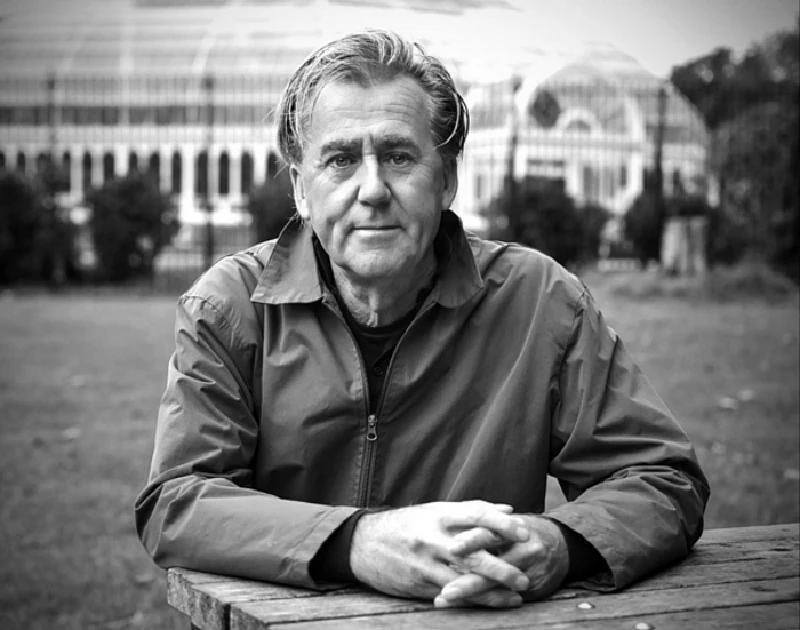
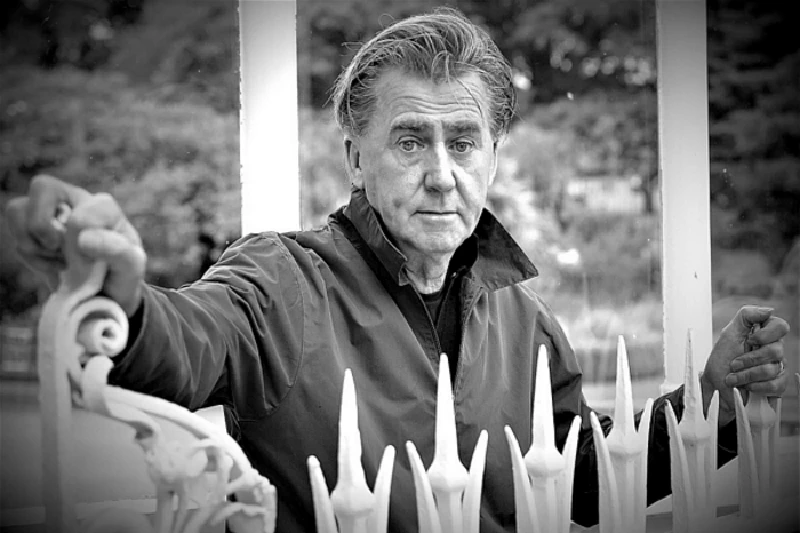
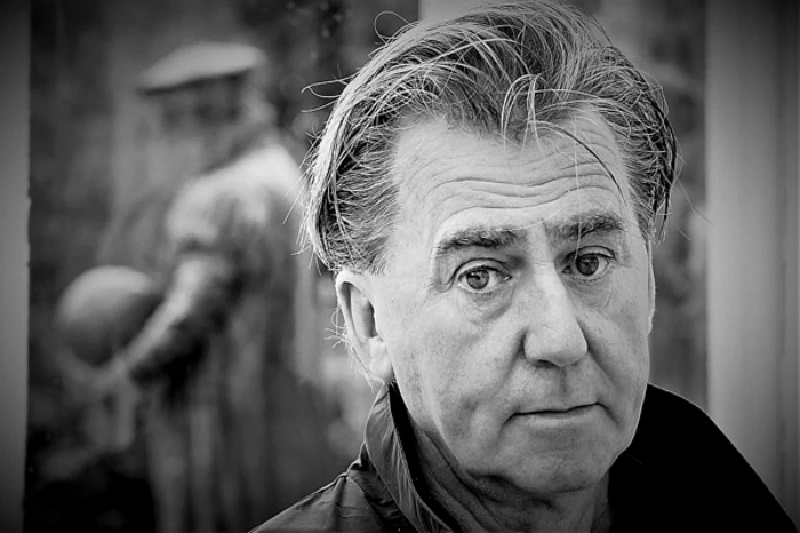
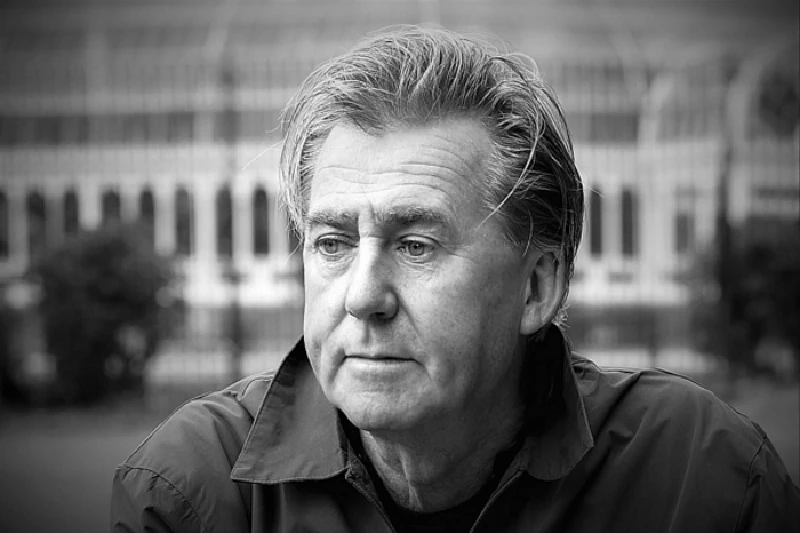
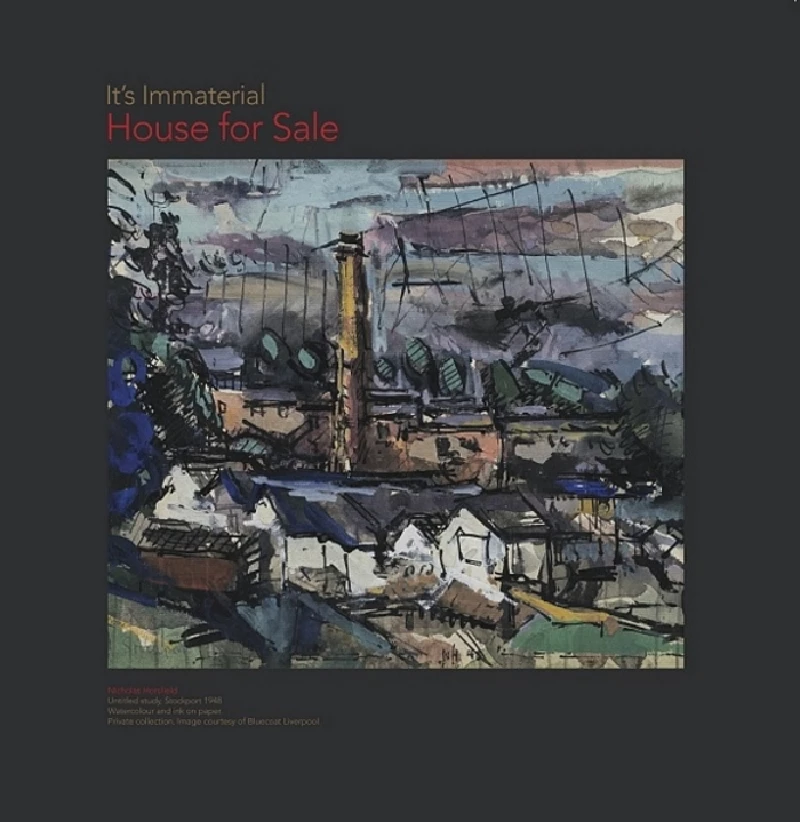
most viewed articles
current edition
John McKay - InterviewRobert Forster - Interview
Cathode Ray - Interview
Spear Of Destiny - Interview
Fiona Hutchings - Interview
When Rivers Meet - Waterfront, Norwich, 29/5/2025
Carl Ewens - David Bowie 1964 to 1982 On Track: Every Album, Every Song
Chris Wade - Interview
Brian Wilson - Ten Songs That Made Me Love...
Shrag - Huw Stephens Session 08.12.10 and Marc Riley Session 21.03.12
previous editions
Heavenly - P.U.N.K. Girl EPBoomtown Rats - Ten Songs That Made Me Love....
Allan Clarke - Interview
Manic Street Preachers - (Gig of a Lifetime) Millennium Stadium, Cardiff, December 1999
Oasis - Oasis, Earl's Court, London, 1995
Barrie Barlow - Interview
Dwina Gibb - Interview
Beautiful South - Ten Songs That Made Me Love...
Pixies - Ten Songs That Made Me Love...
Sound - Interview with Bi Marshall Part 1
most viewed reviews
current edition
Peter Doolan - I Am a Tree Rooted to the Spot and a Snake Moves Around Me,in a CircleVinny Peculiar - Things Too Long Left Unsaid
Garbage - Let All That We Imagine Be The Light
Vultures - Liz Kershaw Session 16.06.88
John McKay - Sixes and #Sevens
Little Simz - Lotus
HAIM - I Quit
Morcheeba - Escape The Chaos
Eddie Chacon - Lay Low
Billy Nomates - Metalhorse
Pennyblackmusic Regular Contributors
Adrian Janes
Amanda J. Window
Andrew Twambley
Anthony Dhanendran
Benjamin Howarth
Cila Warncke
Daniel Cressey
Darren Aston
Dastardly
Dave Goodwin
Denzil Watson
Dominic B. Simpson
Eoghan Lyng
Fiona Hutchings
Harry Sherriff
Helen Tipping
Jamie Rowland
John Clarkson
Julie Cruickshank
Kimberly Bright
Lisa Torem
Maarten Schiethart